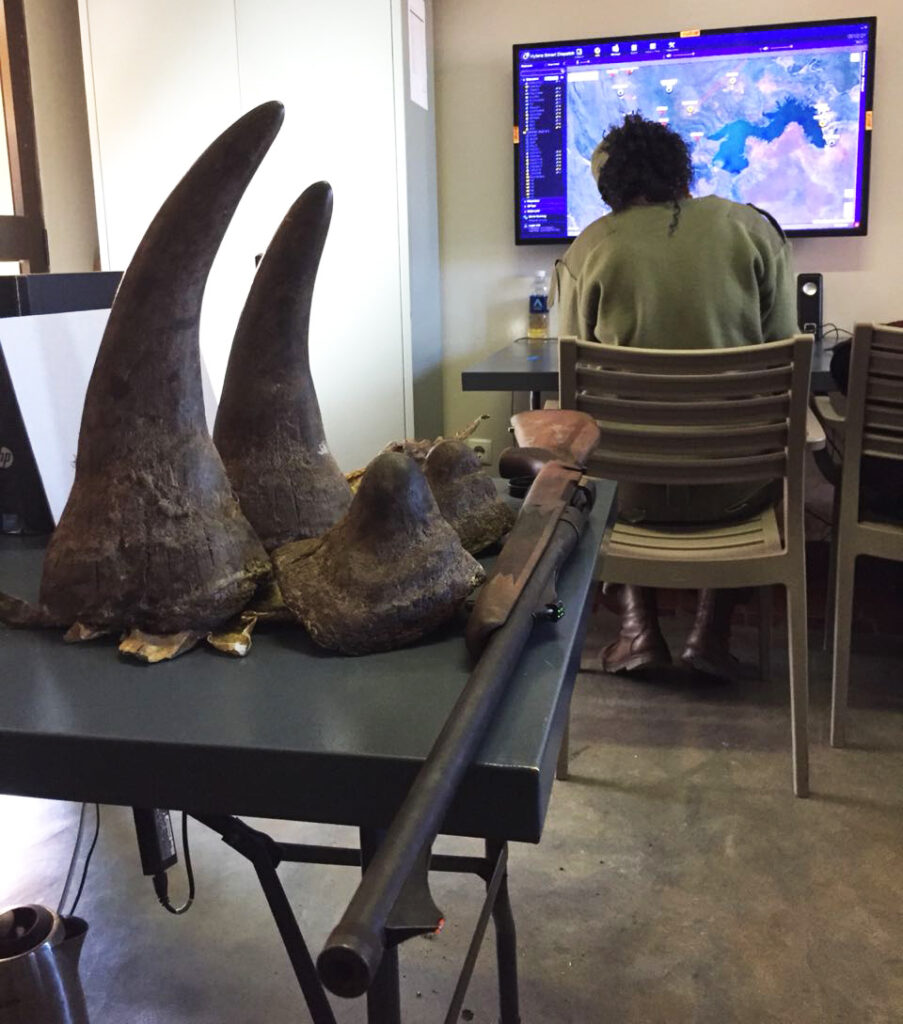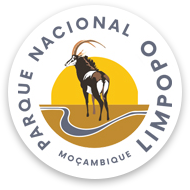Mozambique, 31 August 2018 – The perseverance of ranger forces in Limpopo National Park (LNP) has resulted in the successful apprehension and arrest of two suspected rhino poachers in the north of the Park’s Intensive Protection Zone (IPZ).
It all started a few nights ago when Kruger National Park (KNP) reported hearing shots fired close to the Mozambique border, and requested assistance from LNP to monitor activity on their side. The parks work closely on cross-border anti-poaching efforts as part of agreements to jointly protect and develop the Great Limpopo Transfrontier Conservation Area. In order to simplify this, Peace Parks Foundation supported the implementation and standardisation of a digital radio network that enables integrated communication between teams on both sides of the border.
The team was dispatched from the closest LNP field ranger post to meet their counterparts from KNP. Following up on the information received, the teams found two rhino carcasses right on the border. On scanning the area the team detected tracks leading further into LNP and immediately went on a pursuit that led them over 60km through the park. Using skills acquired during their advanced training, the rangers were able to track and anticipate what the poachers’ next moves would most likely be. Accordingly, ambushes were set up along key exit routes while the trackers were pursuing the poachers from behind.
During the early hours of the morning, with light not yet breaking, a suspect with two sets of rhino horns was detained. This subsequently led to the further apprehension of his partner who was carrying the rifle allegedly used to kill the rhinos. The suspects were taken in to be processed. The trial will be held in the provincial court in the city of Xai-Xai.

Prosecuting poachers
Mozambique has taken great strides in the successful prosecution and appropriate sentencing of perpetrators of environmental crimes. In 2017, two poachers found in possession of lion bone in LNP were sentenced to nine years in prison. In August 2018 a meat poacher that was arrested with 6 firearms and 34 poached animals at Banhine National Park in 2017, was sentenced to 13 years and 4 months incarceration.
Taking back their park
Intensified anti-poaching operations within LNP, combined with improved aerial capability of a helicopter thanks to the kind support of the Environment Management and Conservation Trust (EMCT) and the Geos Foundation and a central command for operations, have increased significant results in disrupting poaching. Earlier this week spotters reported smoke that was seen wafting through riverine forest along the Shingwedzi River. Ranger forces were swiftly dropped in the area by helicopter and found a meat camp with two buffalo carcasses. Two suspects were captured, and further arrests are imminent. A day later an LNP anti-poaching unit disrupted the plans of three suspected poachers near the KNP border after tracking them for 20km. The suspects – who would have entered KNP that night with moonrise – scattered, but left behind their valuable kit including their firearm.

Improved protection
Concerned about the impact of continued poaching on the sustainable development of the Park, Peace Parks Foundation (PPF) works closely with Mozambique’s National Administration for Conservation Areas (ANAC) to enhance protection operations in Limpopo National Park. To this end PPF recently mobilised additional funding amounting to more than $4.5 million to help bolster anti-poaching efforts in the park. This is over and above an approximate $1.0 million already allocated by the Foundation to the development and operations of the park for the period 2014-2018. The financial support is made possible through the generous support of the Dutch and Swedish Postcode Lotteries, KfW, the French Development Agency, MozBio, and other private donors.
To strengthen impact in the Intensive Protection Zone, senior operational and technical staff have been appointed to lead the development of tactical strategies in the Park. This year 29 new rangers were trained and employed and ranger activities are now coordinated from a new mobile field operation base supported by a helicopter that is greatly increasing ranger mobility. The new central command centre has been equipped with the latest technology systems, which also connects with the Park’s new digital radio network. Another helicopter and additional operation unit will be deployed in the park within the coming weeks. In addition, funding is used to cover the operational costs of a dedicated aircraft operating in the IPZ; provide advanced field training; operate a ranger incentive scheme; as well as equip rangers with vital patrol gear.

